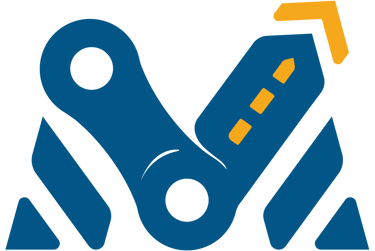
Moving Missouri Forward Summit
Join us for Local Motion's inaugural transportation summit from April 16-18, 2025
SCHEDULE
Wednesday, April 16th
2:30 - 4:15 PM
Check-In / Networking / Snack
4:30 - 6:00 PM
When Driving Is Not an Option: Steering Away from Car Dependency - Anna Zivarts
6:00 - 7:00 PM
Dinner
8:00 - 10:00 PM
Off-site Networking Opportunity @Logboat (Optional)
Thursday, April 17
8:00 - 9:00 AM
Breakfast
9:00 - 10:30 AM
The Right to Move: Why Mobility Matters More Than Ever - Charles Brown
10:45 - 11:30 AM
Advocacy 101 - Sarah Owsley; A Public Health Perspective on Transportation Equity - Hannah Conner; Mobile Tour: Pedestrian Pride
11:30 - 12:00 PM
Snack
12:00 - 12:45 PM
Bike Bus: The Impacts of Riding to School - Christina Williams; Getting S.M.A.R.T. About Paratransit Advocacy - Earl Simms and Teona McGhaw-Ward
1:00 - 2:00 PM
Lunch
2:15 - 3:30 PM
Panel Discussions: Quick Builds and Rapid Development (Bailey Waters, Dane Eifling, & Nick Voss); Funding the Future: Turning Transportation Plans into Reality (Ashley Buechter, Christy Evers, Leslie Herring, & Scott Ogilvie); Mobile Tour: Walk Audit
3:30 - 4:00 PM
Snack
4:00 - 5:15 PM
Panel Discussions: Urban/Rural Divide: Challenges and Commonalities (Dorothy Yeager, Taylor March, & Sheridan Garman-Neeman); Missouri's Need for a Statewide Active Transportation Plan (Doug Hernes, Jollyn Tyryfter, Matt Messina, & Michael Kelley)
5:15 - 6:00 PM
Organization tabling opportunity
6:00 - 7:00 PM
Dinner
Friday, April 18
8:00 - 9:00 AM
Breakfast
9:00 - 10:00 AM
Small Table Discussion
10:15 - 11:00 AM
Community Geography and the Black Experience in Columbia, Missouri: Housing, Transportation, and Displacement - Rikki Ascani and Aída Guhlincozzi; Advocacy in a Post Twitter World - Walter Jenkins; Mobile Tour: Riding Columbia's Bike Boulevard (Bike Fleet)
11:00 - 11:30 AM
Snack
11:30 - 12:15 PM
SafeAcross – A Free Plug-and-Play Pedestrian Safety Initiative that Makes a Difference - Mandy Buettgen-Quinn; Missouri Mobility Management Initiative - Ed Thomas
12:30 - 12:45 PM
Closing remarks
1:00 - 2:30 PM
To-go lunch
You will receive a printed booklet with all of the Summit information at check-in, but you can also find the digital copy of the Summit Booklet here:
PRESENTATIONS
Below are the details & descriptions about the presentations you can expect at this summit. However, there is much more to come, including multiple panel discussions, so be sure to check back later. To find more information about the speakers themselves, click the link below.
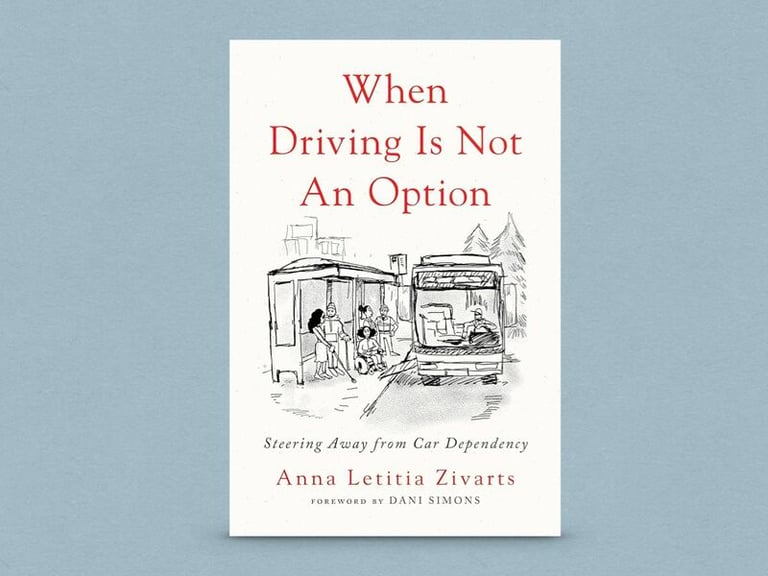

When Driving Is Not an Option: Steering Away from Car Dependency
Presentation by Anna Zivarts
One third of people living in the United States do not have a driver license. The majority of involuntary nondrivers are disabled, lower income, unhoused, formerly incarcerated, undocumented immigrants, kids, young people, and the elderly. They are also largely invisible due to a mobility system designed almost exclusively for drivers.
When Driving is Not an Option shines a light on the reality for non-drivers and explains how improving our transportation system with nondrivers in mind will create a better quality of life for everyone. This book is written by a low-vision mom, disability advocate, and fellow non-driver Anna Letitia Zivarts.
During this event, Zivarts will explain that when the needs of involuntary nondrivers are viewed as essential to how we design our transportation systems and our communities, not only will we be able to more easily get where we need to go, but the changes will lead to healthier, climate-friendly communities for everyone.
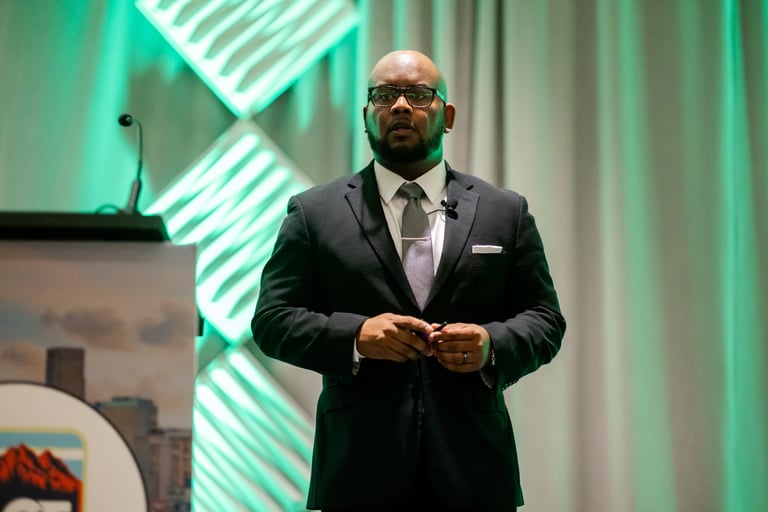

The Right to Move: Why Mobility Matters More Than Ever
Presentation by Charles Brown
In Arrested Mobility: Overcoming the Threat to Black Movement, Charles T. Brown, founder and CEO of Equitable Cities, examines why mobility is not afforded in the same way to everyone. He argues that the legacy of structural racism and White supremacy has led to disinvestment and over-policing in Black communities and communities of color, thwarting opportunity, as physical mobility and social mobility are intrinsically linked. This experience for Black people around the world is what Brown refers to as arrested mobility.
Brown examines this condition that society has created through what he calls “The Four Ps”: Polity, Policy, Planning, and Policing and suggests solutions, some of which are already being implemented in the US. Drawing from research, his own experience, and the experience of other Black Americans, Brown shows that change is possible and inspires and guides readers to un-arrest mobility together.
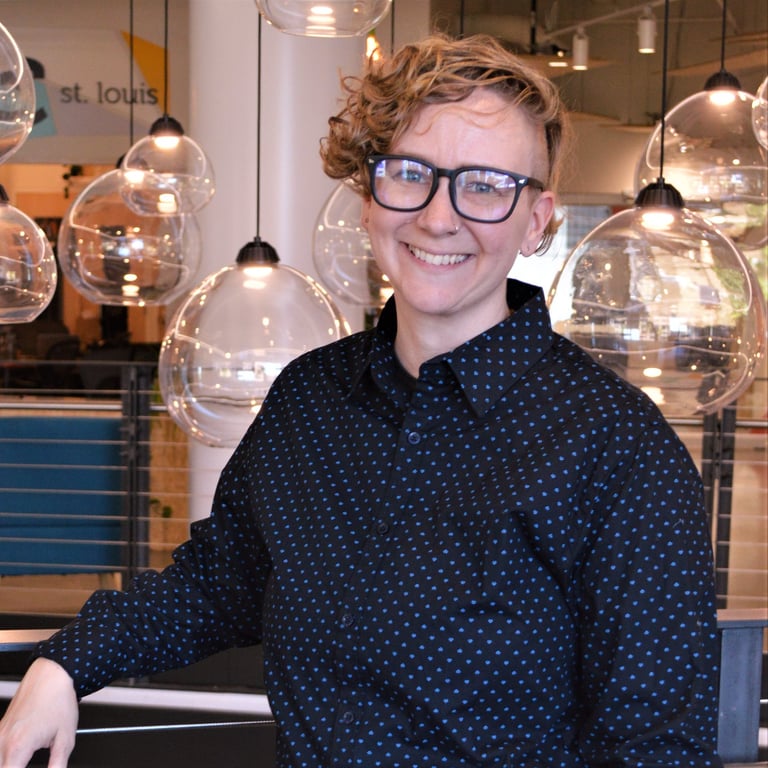

Advocacy 101
Presentation by Sarah Owsley
Advocacy 101 will teach advocates, impacted people, and not for profit staff how to share their experience with elected officials. Geared towards the Missouri state legislature, these skills can help you advocate for systems change at many levels. Decision makers must hear from the experts, including you. Policy advocacy doesn’t need to feel scary or overwhelming, and you will leave this training with the basic education needed to grow your skills and demystify the process to have the greatest impact on the lives of our neighbors.
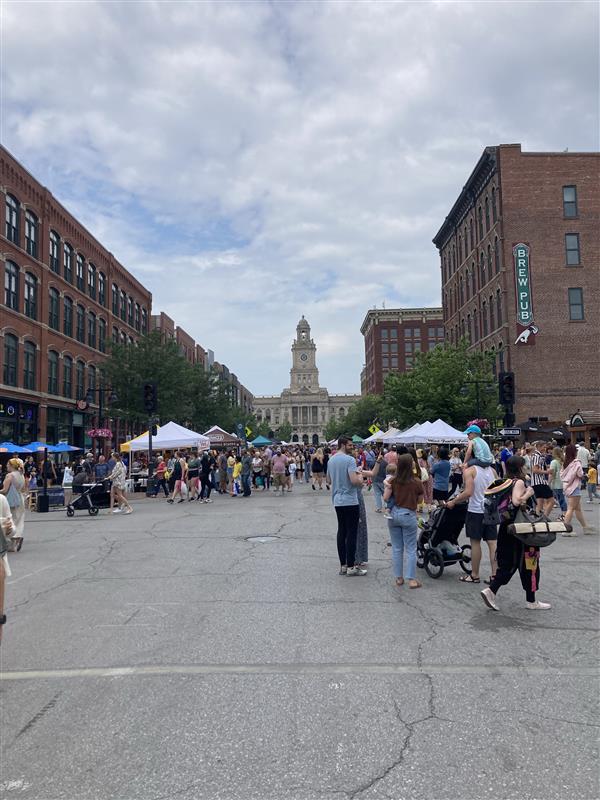

A Public Health Perspective on Transportation Equity
Presentation by Hannah Conner
Transportation is a necessity for nearly every person’s daily life. Community members frequently calculate how to efficiently get groceries, commute to work or school, see a health care provider, or even connect with loved ones. Transportation is more than how to get from Point A to Point B; it is a critical component to people’s well-being. Thoughtful and equitable transportation infrastructure contributes to improved public health in several ways. First, infrastructure for safe active transportation like traffic calming tools and designated bike and walking paths can prevent traffic injuries and fatalities. Traffic fatalities soared during the COVID-19 pandemic and have yet to return to pre-COVID levels. In Missouri, there were 1,057 traffic fatalities in 2022 (NHTSA, 2024), and there were 130 and 126 pedestrian deaths in 2022 and 2023 respectively (Governors Highway Safety Association, 2024). Second, increasing opportunities for active transportation, e.g. walking and biking, can lead to better health through increased access to resources such as healthcare, employment, and food. Third, diverse and person-centered transportation options that are tailored to the needs of the community ensure that all community members are able to participate equitably in transportation. Ensuring that roads are navigable to people of all ability levels and that there is equitable investment in all communities, including rural and historically marginalized communities, will lead to a more just Missouri.
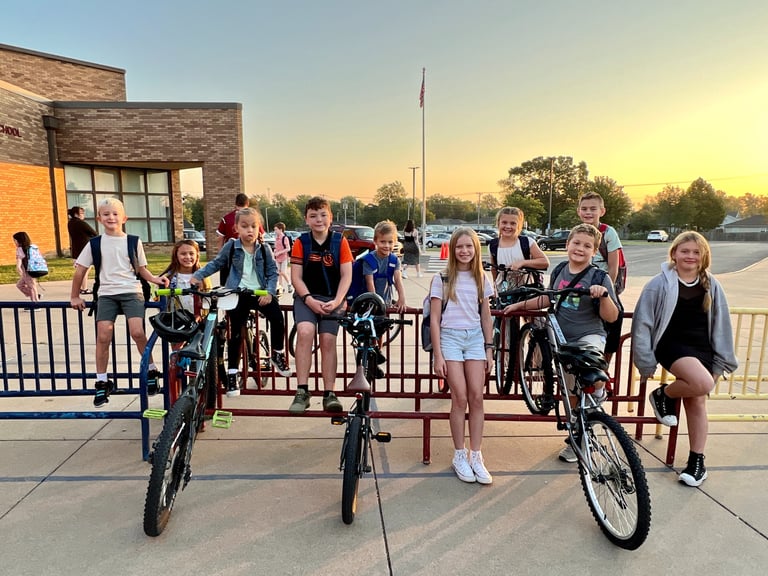

Bike Bus: The Impacts of Riding to School
Presentation by Christina Williams
What is a bike bus? It's a coordinated, group Active Transportation to School generally consisting of one or more parent volunteers who lead students on a bike ride along a defined route to school. But, it's so much more than that... Providing opportunities for students to walk and bike safely to school is critical to a healthier community.
Learn about how Joplin's small bike bus began and how parents or volunteers can implement a bike bus or walking bus program in their community.
Discover the transformative impacts riding to school together has on the students, their neighborhood, and our perceptions about commuting and community building.
Explore examples of resources, infrastructure challenges, and obstacles families face in choosing active transportation to school.
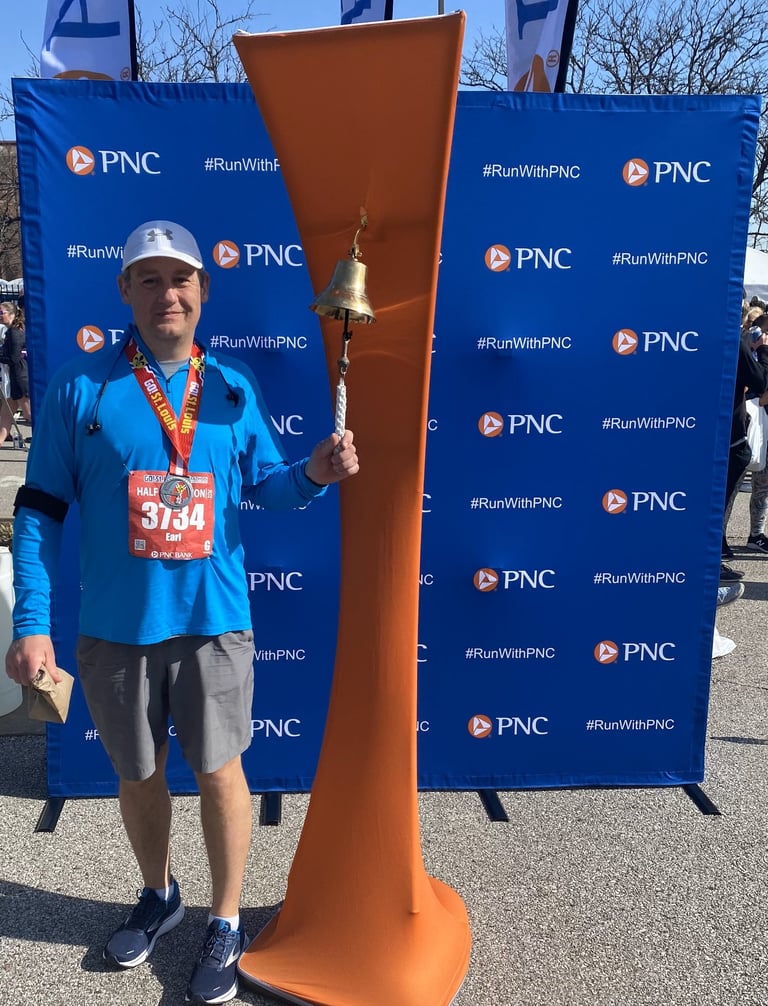

Getting S.M.A.R.T. About Paratransit Advocacy
Presentation by Earl Simms and Teona McGhaw-Ward
This presentation will offer an in-depth look at Paraquad's advocacy and organizing efforts concerning the paratransit service, Call-a-Ride, in our region. Starting in January 2023, issues like ride denials, long wait times, and a reduced service area prompted a significant advocacy campaign. We will discuss Call-a-Ride's chronic problems, the formation of the St. Louis Alliance for Reliable Transit (S.M.A.R.T.) in response to these issues, and the strategic actions taken over the last two years under Paraquad's guidance.
This grassroots movement has led to leadership development within the disability community, as well as impactful enhancements in Metro's Call-a-Ride service, including partial service restoration, employment of an independent ADA compliance consultant, and improved communication with Bi-State Development's leadership.
S.M.A.R.T. began with just six advocates in February 2023 but expanded to over 100 by the end of 2024. Their activities included public testimonies, media engagements, and issuing a quarterly report card to Bi-State Development, local policymakers, and the media, significantly influencing the St. Louis community. S.M.A.R.T. continues to lead in the push for accessible, reliable public transit.
Our local-focused efforts have also developed a scalable model, aiming to form a coalition for securing high-quality, affordable public transportation statewide.
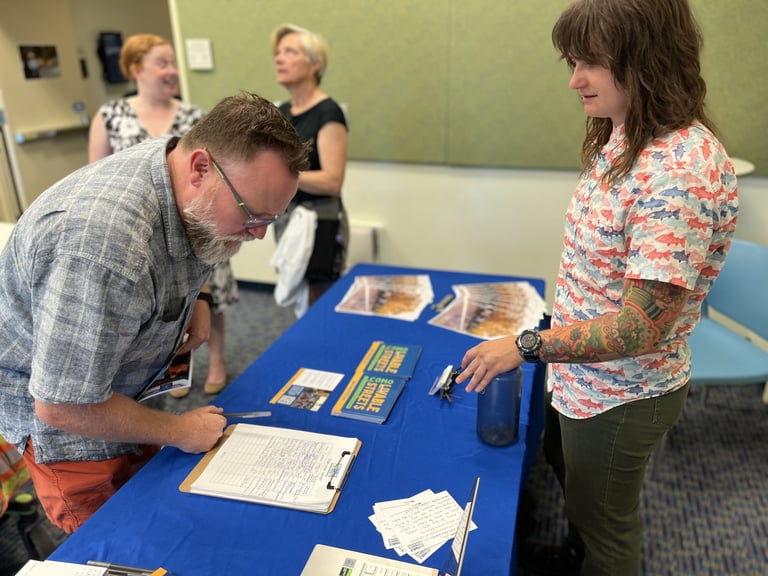

Community Geography and the Black Experience in Columbia, Missouri: Housing, Transportation, and Displacement
Presentation by Rikki Ascani and Aída Guhlincozzi
Urban renewal and transportation infrastructure projects have historically led to the displacement and marginalization of Black communities across the United States. While these effects have been well-documented in major cities, there is a significant gap in research on how these processes have shaped the Black community in Columbia, Missouri. This project utilizes community geography praxis to examine the intersection of place, institutional racism, and forced displacement under the guise of urban renewal and increased connectivity. By employing historical mapping and conducting interviews with Black Columbia residents, this research uncovers how housing and transportation development policies have systematically impacted the community. The co-production of knowledge with local Black residents aligns with community geography’s goal of amplifying historically marginalized voices and shedding light on societal injustices. Additionally, this work contributes first-hand historical knowledge to existing research on housing and transportation, offering a deeper understanding of how these policies have shaped Black life in Columbia. Through this research, I aim to challenge dominant narratives of progress and infrastructure development by centering the lived experiences of those most affected.
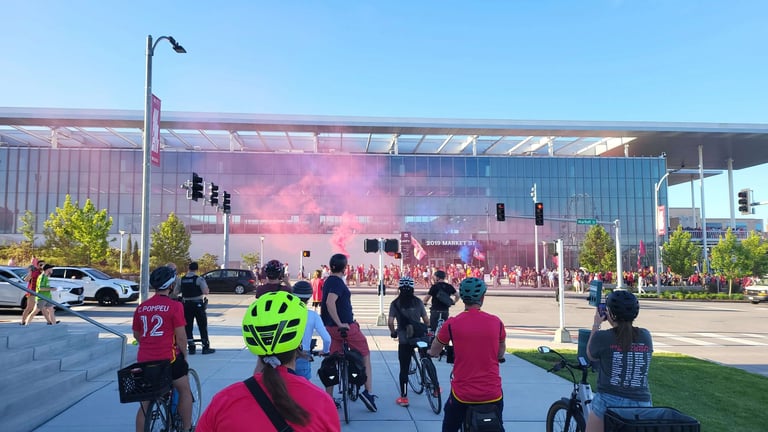

Advocacy in a Post Twitter World
Presentation by Walter Jenkins
Since the implosion and extremification of communities online it has been never been so easy difficult and scary trying to engage with the public particularly online. While there is not a great single way to get the word out being able to find and engage with existing private communities is a great way to build your coalition. This presentation will walk through different methods I have done to tell stories online and tell the story of STL Urbanists and how they got people outside to advocate IRL.
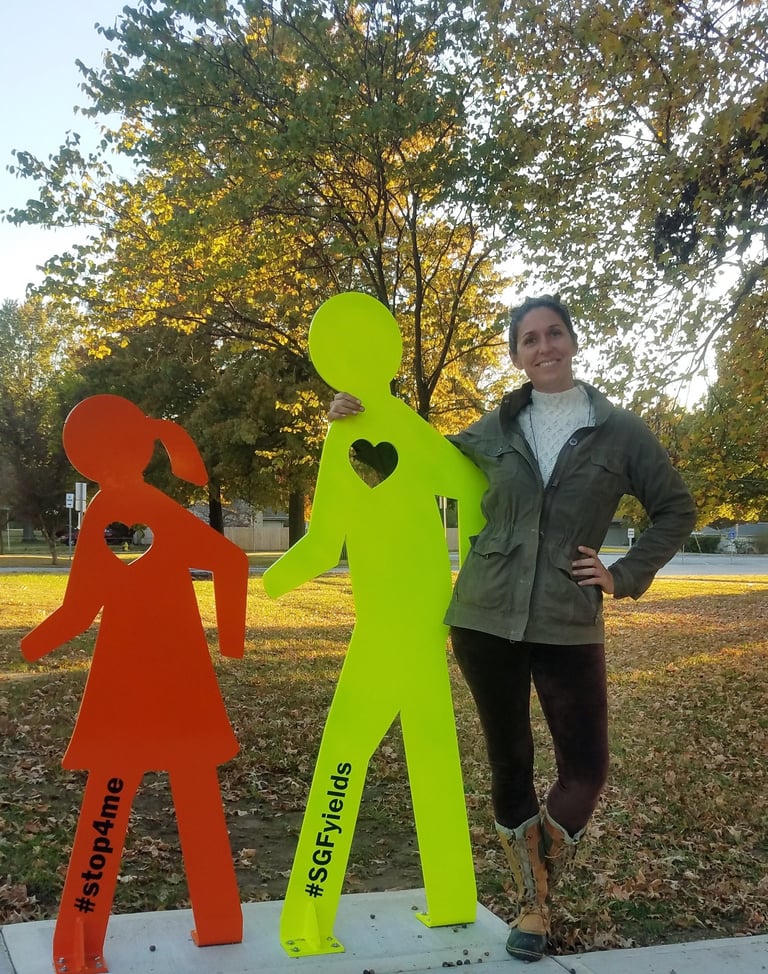

SafeAcross – A Free Plug-and-Play Pedestrian Safety Initiative that Makes a Difference
Presentation by Mandy Buettgen-Quinn
Based on the award-winning SGF Yields campaign, SafeAcross is a comprehensive pedestrian safety program that can measurably increase driver compliance at crosswalks through education, engagement engineering, enforcement and policy. Recognized as a noteworthy practice of the Safe System Approach by the Federal Highway Administration, other communities can become a SafeAcross host community free of charge.
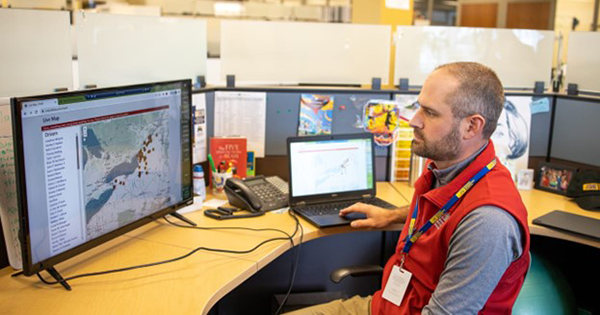

Missouri Mobility Management Initiative
Presentation by Ed Thomas
A mobility management program can serve as one of many potential solutions to Missouri’s current transportation crisis. It can be the central component to achieving more and better transportation services. Mobility management is an innovative approach for managing and delivering coordinated transportation services to customers, including older adults, people with disabilities, and individuals with lower incomes. Mobility management focuses on meeting individual customer needs through a wide range of transportation options and service providers.
Panel Discussion - Funding the Future: Turning Transportation Plans into Reality
Discussion featuring Ashley Buechter, Christy Evers, Leslie Herring, and Scott Ogilvie. Moderated by Taylor March.
Panel Discussion - Urban/Rural Divide: Challenges and Commonalities
Discussion featuring Dorothy Yeager, Taylor March, and Sheridan Garman-Neeman. Moderated by Emily Piontek.
Panel Discussion - Quick Builds and Rapid Development
Discussion featuring Bailey Waters, Dane Eifling, and Nick Voss. Moderated by Josh Parshall.
Panel Discussion - Missouri's Need for a Statewide Active Transportation Plan
Discussion featuring Doug Hermes, Jollyn Tyryfter, Matt Messina, and Michael Kelley. Moderated by Jackson Hotaling.
Pedestrian Pride Walking Tour: Seeing Downtown Columbia on Foot
Mobile Tour led by McKenzie Ortiz
Join Pedestrian Pride for a guided walking tour (~1.5 miles) of downtown Columbia that explores the pedestrian experience through the lens of equity, design, and access. This tour will highlight key areas where infrastructure supports walkability — and where it falls short. Along the way, we’ll discuss how the built environment shapes mobility for all users, particularly those who rely on walking, rolling, or public transit to meet their everyday needs. Participants will leave with a deeper understanding of how street-level design impacts real-world movement through the city.
Walk Audit – Assessing Streets for a More Connected Community
Mobile Tour led by Rikki Ascani
Join us for an interactive walk audit (~1.7 miles), where we’ll explore the built environment firsthand and assess how our streets serve—or fail to serve—people of all abilities. This guided tour will take participants through key areas of central Columbia, evaluating sidewalks, crossings, transit access, and overall walkability.
Using Local Motion's Community Walk Audit Form as a guide, we’ll discuss what makes a street safe and accessible, identify barriers to mobility, and highlight real-world solutions that can be applied anywhere across Missouri. We'll discuss how walkability and access impact livable communities from housing, access to basic needs, and more! Whether you're a transportation professional, advocate, or policymaker, this hands-on experience will provide valuable insights into how infrastructure impacts daily movement and community access.
Lace up your walking shoes and get ready to see the streets through a new lens!
Bikeable Columbia: Exploring the City on Two Wheels
Mobile Tour led by Jackson Hotaling
In 2018, Columbia was named one of the “Best Bike Cities in America” in Bicycling magazine, ranking 46th out of more than 100+ cities considered for the category. This mobile tour will give attendees the experience of the bike infrastructure the City has implemented to better connect the community living east of downtown to the central area. This tour (~7 miles) will provide the opportunity to bike along the interconnected networks of bike boulevards, multi-use paved trails, and protected bike paths, stopping to talk about the key bike infrastructure wins Columbia has had to make this all possible.
We recommend this tour for cyclists who feel confident riding on streets (at times with mixed traffic) and in a group setting. Local Motion will have 14 bikes for participants to use. We will give these out on a first come, first served basis. Helmets will not be provided.
STAY CONNECTED WITH US
Be the first to hear about our latest Advocacy Alerts and events, and get updates on the work our organization is doing every day with the support of people like you.
